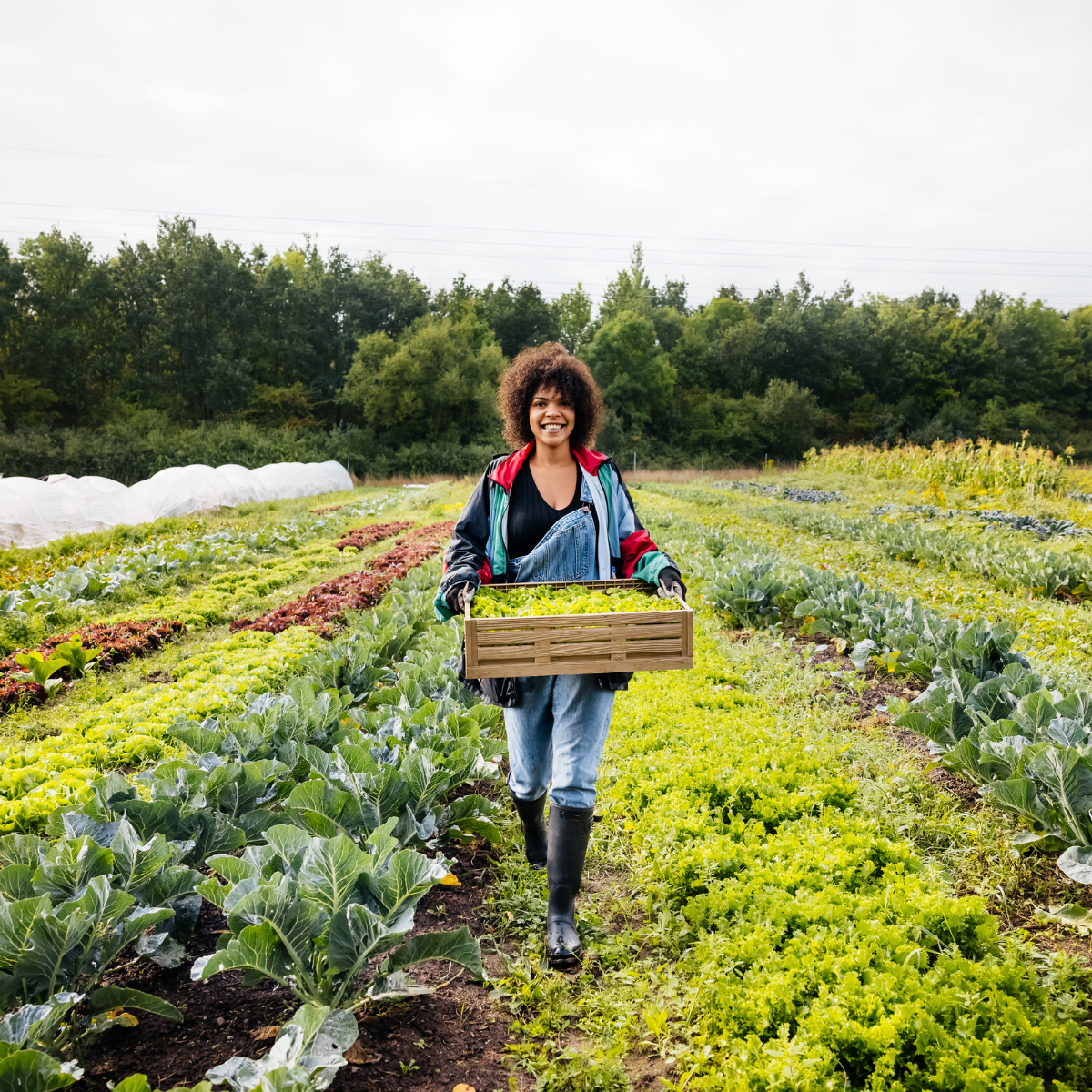Lifestyle
Dyson’s Farm-to-Face Innovation Blends Beauty with Sustainability

Dyson is redefining the beauty industry by integrating agricultural practices into its product development. At its farm in Lincolnshire, an advanced robotic system meticulously selects strawberries, demonstrating the company’s commitment to innovation. While these strawberries are not part of their haircare line, they illustrate Dyson’s broader strategy of applying precision farming techniques to enhance its beauty products.
The focus is currently on sunflowers, cultivated on Dyson’s expansive farm, which spans 36,000 acres and is part of the largest farming business in Britain. This includes the production of various crops, such as wheat, barley, peas, and potatoes, alongside 800,000 sunflowers. These sunflowers are essential for the new OmegaTM Nourishing Range, which features the Hydrating Hair Oil and Leave-in Conditioning Spray. This marks a significant fusion of Dyson’s agricultural efforts with its beauty innovations.
Sir James Dyson, the founder of Dyson, emphasizes the importance of sustainable practices in their farming operations. “Growing our own sunflower oil on site wasn’t essential, but by doing it ourselves, we know it’s produced sustainably with minimal fertiliser and weed killer,” he explains. The company employs precision technology to manage weed control, which reduces the need for widespread pesticide use. Dyson’s approach not only aims to produce high-quality ingredients but also enhances the land’s health over time.
In 2022, Dyson introduced the Chitosan styling range, designed to be used with its renowned hot tools. This development sparked further exploration into promoting healthy hair while minimizing damage from heat exposure. Dyson notes, “When you study hair science, you learn about different hair types and their needs. People want styles without damaging their scalp or hair.” This understanding has driven the innovation of groundbreaking tools like the Supersonic Hair Dryer and the Airwrap Multi-Styler.
The OmegaTM Nourishing Range incorporates the patented Oli7TM blend, which includes various oils such as olive, Abyssinian, corn, avocado, sesame, and macadamia, along with the sunflower oil sourced directly from the Lincolnshire farm. Together, these ingredients provide deep hydration and a protective moisture seal, making hair more manageable. Dyson’s aim is to create a seamless connection between its agricultural practices and beauty products, allowing for greater control over product development and a commitment to sustainability.
The concept of “farm-to-face” is not new; brands like FKA Haeckles have been championing this approach since 2012. Founder Dom Bridges began harvesting seaweed from the beaches of Margate, with a mission to promote local resources and minimize waste. “We are the only business, other than the fishermen, utilizing this key identity of Margate,” Bridges states. His commitment to sustainability is reflected in the company’s practices, ensuring that they do not over-harvest resources.
Similarly, Dr Hauschka has maintained a strong connection to nature since establishing its skincare brand in 1967. The company’s medicinal herb garden in Eckwälden, Germany, covers around five hectares and is cultivated biodynamically. “This hands-on approach not only guarantees traceability and transparency but also reflects our deep commitment to working in harmony with nature,” a representative mentions, underscoring the brand’s dedication to sustainable practices.
Jurlique, founded in 1985 by Jurgen and Ulrike Klein, also emphasizes the importance of their biodynamic farm in the Adelaide Hills, Australia. The farm produces over 40 plant botanicals that are integral to the brand’s skincare formulations. Marion Goyet, Jurlique’s Global Brand and Marketing Director, highlights that their holistic approach enables them to guarantee quality and traceability for their products.
While Dyson may not be the first to embrace the “farm-to-face” philosophy, its recent initiatives signal a shift among larger companies towards more intentional and sustainable practices. Dyson predicts that as consumers become more conscious of the origins of their food, they will similarly want transparency regarding beauty ingredients. “The more natural and traceable, the better,” Dyson concludes, reflecting a growing demand for products that align with consumer values around sustainability and authenticity.
-

 Health2 months ago
Health2 months agoNeurologist Warns Excessive Use of Supplements Can Harm Brain
-

 Health2 months ago
Health2 months agoFiona Phillips’ Husband Shares Heartfelt Update on Her Alzheimer’s Journey
-

 Science1 week ago
Science1 week agoBrian Cox Addresses Claims of Alien Probe in 3I/ATLAS Discovery
-

 Science7 days ago
Science7 days agoNASA Investigates Unusual Comet 3I/ATLAS; New Findings Emerge
-

 Science4 days ago
Science4 days agoScientists Examine 3I/ATLAS: Alien Artifact or Cosmic Oddity?
-

 Entertainment4 months ago
Entertainment4 months agoKerry Katona Discusses Future Baby Plans and Brian McFadden’s Wedding
-

 World2 months ago
World2 months agoCole Palmer’s Cryptic Message to Kobbie Mainoo Following Loan Talks
-

 Entertainment3 months ago
Entertainment3 months agoEmmerdale Faces Tension as Dylan and April’s Lives Hang in the Balance
-

 Entertainment3 months ago
Entertainment3 months agoLove Island Star Toni Laite’s Mother Expresses Disappointment Over Coupling Decision
-

 Entertainment2 months ago
Entertainment2 months agoMajor Cast Changes at Coronation Street: Exits and Returns in 2025
-

 World2 months ago
World2 months agoCoronation Street’s Asha Alahan Faces Heartbreaking Assault
-

 World1 week ago
World1 week agoKaye Adams Suspended from BBC Radio Show Following Complaint









